
Home
World Endurance Forum
Paris, March 31, 2007
A SummaryDay 1 - Points of View
Forum Documents
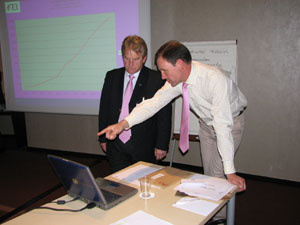 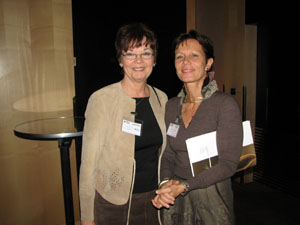 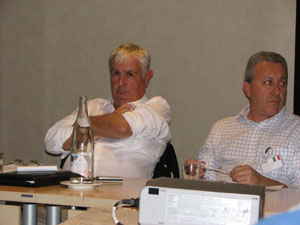 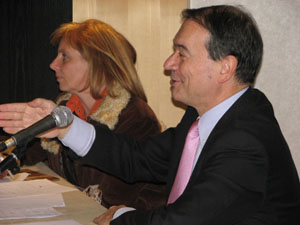 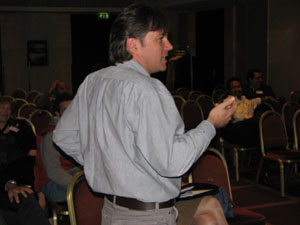 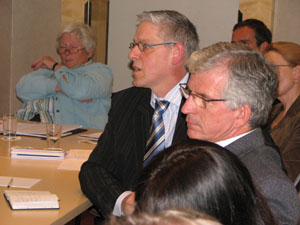 |
Observation and CollaborationThoughts on the World Endurance Forum in Paris - April 1, 2007.There were 31 equestrian federations represented in Paris this weekend. They came together to talk about life, the universe and everything. The process was extremely inclusive and enjoyed open and candid conversation.Each of the groups spent Saturday afternoon discussing current issues and recommendations for the future committee to discuss. As you will see from their reports, there was a surprising number of common themes and recommendations from each of the groups involving concerns about the qualification process of horse and rider; the length of loops, the number and duration of vet checks, and, of course, the speed of the race. If you've been as interested as I have about the effect of speed on the horse at international events, you will be pleased to know that the members present here this weekend are very concerned about the welfare of the horse and eager to identify ways to better manage the issues we have all become so familiar with. Of great surprise to me was the scope and popularity of this sport of endurance - the statistics in terms of growth and numbers summarized in some of the presentations are staggering. Some countries, like France, function exclusively under FEI sanctioning for all endurance rides. Others, like South Africa have a few FEI sanctioned events, and use the FEI rules as the basis for all other endurance rides. It is intoxicating to know that the sport we enjoy in the remote and distant corners of our own communities is alive and really thriving all across the world. I arrived at the conference this weekend with the goal of relating what is happening on the international scene with my own very humble endurance riding activities. Just three weeks ago, I was in the mountains north of Sonoita, Arizona riding a young horse on a ride all day with only a handful of entries. How does it all connect? The sport is growing in stature and popularity at a terrific pace, and as the numbers increase, so does the pressure for increased international competition. High profile rides must be planned, managed and policed effectively because the way they are perceived and presented will affect our grassroots rides from a public relations and legal standpoint. I simply see no way around it. The growing infrastructure supporting the high profile rides can only serve to help us better understand more about our sport at home: the diet, the training regime, the effect of heat, humidity and distance on our equines, the length of loops, length of vet holds, and so on. Imagine the expertise we can all benefit from. And imagine how our own expertise can play a role in the development of the sport on an international basis. When I sat at home and planned my ride schedules, there has been nothing further from my mind than the latest rule changes in the FEI handbook, or the ride results of an FEI endurance event in Compiegne. But I challenge you to think about ways of playing an active role as diplomat in shaping the sport you love. The two extremes will never actually be the same sport, but I do believe they will always be related. One will always be faster than the other, and one will always be for the very few and very competitive. Just look at any other professional sport to draw your own conclusions. I guarantee you that people will begin to look at you less quizzically in future years when you tell them you are an endurance rider. Companies will sponsor international endurance events, press will feature stories on the training, the players and the results, and our own rides across North America will feed a small but constant number of graduates into international competition. My resolution, which I will think about when I am riding my ten-hour 55-mile ride in Scottsdale next weekend, is to think of ways to play a collaborative role in the evolution of this great sport. I will take great comfort in knowing that 100-mile races are alive and well on the international scene, and that our sisters and brothers across the world are all dealing with many of the same issues we are. Our role as educators and trainers is vital to the healthy evolution of the sport in its entirety. May the strength of observation and collaboration be with you! Kevin Myers |
Forum Document Downloads




